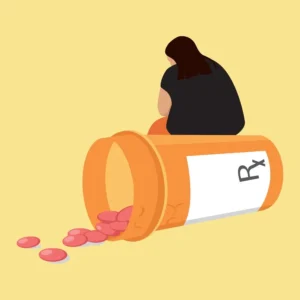Lyrica, known generically as pregabalin, is an anticonvulsant medication commonly prescribed for conditions such as neuropathy, nerve pain, and restless legs syndrome (RLS). While it has received approval from the U.S. Food and Drug Administration (FDA) for these uses, many patients have reported significant side effects, with weight gain being among the most concerning.
Applications of Lyrica
Restless Legs Syndrome (RLS):
RLS is a neurological disorder characterized by an uncontrollable urge to move the legs, often accompanied by uncomfortable sensations. Traditionally, treatments have included dopaminergic medications like ropinirole and Mirapex, which function by increasing dopamine levels in the brain to alleviate symptoms. However, these drugs have become less favored due to severe withdrawal symptoms upon discontinuation. Consequently, Lyrica has gained popularity as an alternative treatment for RLS.
Neuropathy:
Neuropathy, whether diabetic or non-diabetic, involves nerve damage that leads to pain, tingling, or numbness, particularly in the extremities. Medical professionals often prescribe Lyrica as a primary medication to mitigate these symptoms. This is especially prevalent among older adults who develop type 2 diabetes and subsequently experience neuropathic pain.
Potential Risks and Side Effects
While Lyrica can be effective in managing nerve-related symptoms, it is associated with several side effects. Commonly reported issues include drowsiness and a feeling of spaciness, particularly at higher dosages. However, the most prominent concern among patients is weight gain. On average, individuals taking Lyrica may gain between 10 to 15 pounds, but there have been cases where patients have reported gains of 40 to 60 pounds.
This substantial increase in weight can lead to a cascade of other health problems, including elevated blood pressure and an increased risk of heart failure. Additionally, some patients experience fluid retention, resulting in significant peripheral edema in the feet and legs. The added weight also places extra stress on the joints in the lower extremities, potentially causing wear and tear that leads to osteoarthritis. In severe cases, this may necessitate surgical interventions. For those with pre-existing conditions like diabetes, high blood pressure, or obesity, Lyrica-induced weight gain can increase the risk of serious health complications.
Patient Experiences with Lyrica
Many patients have shared their experiences with Lyrica, particularly concerning weight gain. It’s common to hear accounts of individuals gaining 30, 40, or even 50 pounds after starting the medication. This sudden weight increase can have profound physical and psychological effects, leading to feelings of frustration and anger, especially when patients are unaware of alternative treatments that address the root cause of their condition. Some have expressed regret, feeling that they could have avoided or discontinued the medication earlier had they known about other options.
Evaluating the Effectiveness of Lyrica
While some patients experience significant relief from nerve-related symptoms with Lyrica, others find the benefits overshadowed by the side effects. Research into the medication’s effectiveness, particularly for conditions like RLS, is limited. For instance, a research assistant investigating studies on Lyrica’s efficacy in treating RLS found a surprising lack of substantial evidence supporting its use. He did this to provide data for the book I made called A Perfect Night’s Sleep which documents our research and the effectiveness of surgical reversal of restless legs. The assistant was shocked at how little research there is to show its effectiveness.
Patient Perspectives on Lyrica

Patients’ experiences with Lyrica can generally be categorized into three groups:
- The “just say no” group: These individuals are strongly opposed to taking medications, often due to concerns about side effects. They prefer to avoid drugs like Lyrica and seek alternative treatments. We are a very over-drugged society and if you watch TV it seems like every other commercial is about a drug. These patients are very concerned about the side effects of any drug, not just Lyrica.
- The “I’m stuck with this drug” group: This group experiences some relief from their symptoms with Lyrica but is eager to find other options to discontinue its use due to side effects like weight gain and drowsiness. They often explore treatments that address the underlying causes of their condition, such as nerve decompression procedures or non-drug therapies. It’s a love-hate thing with Lyrica: the drug helps but they pay the price with the common side effects.
- The “Been there done that” group: These patients have tried Lyrica, often during periods of severe pain, but discontinued its use either because it was ineffective or due to intolerable side effects. Common complaints include feeling mentally foggy, excessive drowsiness, and significant weight gain.
You might be asking yourself, shouldn’t there be another group? And you are right, there should be. That would be the, “I take the drug, it’s awesome and I have no side effects!” Sadly, from my experience, this is the smallest group, and I seldom hear about it.
Imagine the negative physical and mental effects of carrying an extra 50 pounds. Many patients are angry and frustrated that they never knew about options that treat the root cause of the problem, and they could have avoided the medications or had an opportunity to get off the medications sooner in their life. We have had success by treating the root cause of neuropathy and restless legs with our surgical and non-surgical means and it has been rewarding for our patients who are reversing Lyrica weight gain.
How to Reverse Lyrica Weight Gain?
If you’ve gained weight on Lyrica, you’re not alone. Here are some strategies to help prevent and reverse Lyrica-related weight gain:
- Evaluate Alternative Treatments – Nerve decompression therapy, physical therapy, and lifestyle changes may help manage pain without medication.
- Stay Active – Light exercise like walking, yoga, or strength training can help maintain a healthy weight.
- Watch Your Diet – Focus on high-protein, low-carb meals to counteract cravings and fluid retention.
- Monitor Fluid Retention – Reduce salt intake and stay hydrated to minimize Lyrica-related bloating.
- Talk to Your Doctor – Ask about lowering your dose or switching to a different nerve pain medication with fewer weight-related side effects.
Exploring Alternative Treatments
Given the potential risks and side effects associated with Lyrica, it’s crucial for patients to explore alternative treatment options. Addressing the root cause of neuropathic pain or RLS may offer more sustainable relief without the drawbacks of medication. For instance, nerve decompression surgery has been shown to improve symptoms in some patients by relieving pressure on compressed nerves.
Non-surgical treatments, such as electrical stimulation (ESTIM) and MLS laser therapy, have also demonstrated effectiveness in promoting nerve repair and reducing pain. ESTIM works by sending electrical pulses to stimulate nerve healing, while MLS laser therapy targets cells’ mitochondria to enhance energy production and repair processes.
Final Thoughts: Is Lyrica Worth the Risk?
While Lyrica remains a commonly prescribed medication for neuropathy, nerve pain, and restless legs syndrome, it’s essential for patients to be aware of its potential side effects, particularly significant weight gain. Exploring alternative treatments that address the underlying causes of these conditions may provide effective relief without the associated risks. Patients are encouraged to discuss these options with their healthcare providers to determine the most appropriate course of action for their individual needs.
If you’re looking for drug-free ways to manage neuropathy or restless legs, we can help! Contact us today to learn more about our proven non-surgical treatment options.
So, the message is that if you’re experiencing neuropathic pain from neuropathy or restless leg type symptoms start asking the more difficult question: what other options do I have? Is it worth the risk of potential weight gain, high blood pressure, diabetes or worsening of your diabetes, cancer, and arthritic joints by using Lyrica or other medicines?
Start looking behind another door, a door of hope. Consider shutting the door of drug treatment and learn about ways to make your nerve pain a memory!
Call us today at our Fort Collins location (970) 329-8158, Broomfield location (303) 997-2795, Surgery Center (970) 329-8158, or use our online scheduling system to book your appointment.
View our patient testimonials and informative videos on YouTube.
Also join us on facebook for support from other previous patients and people seeking help. https://www.facebook.com/AndersonPodiatryCenter
Questions and Answers:
- What is Lyrica commonly prescribed for?
Lyrica is prescribed for conditions such as neuropathy, nerve pain, and restless legs syndrome. - What are the common side effects of Lyrica?
Common side effects include weight gain, drowsiness, and mental fogginess. - How much weight do patients typically gain on Lyrica?
Patients typically gain between 10 to 15 pounds, though some have reported gains of up to 60 pounds. - What are the potential health risks associated with Lyrica-induced weight gain?
Potential health risks include increased blood pressure, heart failure, fluid retention leading to peripheral edema, and added stress on lower extremity joints, which may result in osteoarthritis. - Are there alternative treatments to Lyrica for nerve-related conditions?
Yes, there are both surgical and non-surgical treatments that address the root causes of nerve-related conditions without relying solely on medication.



